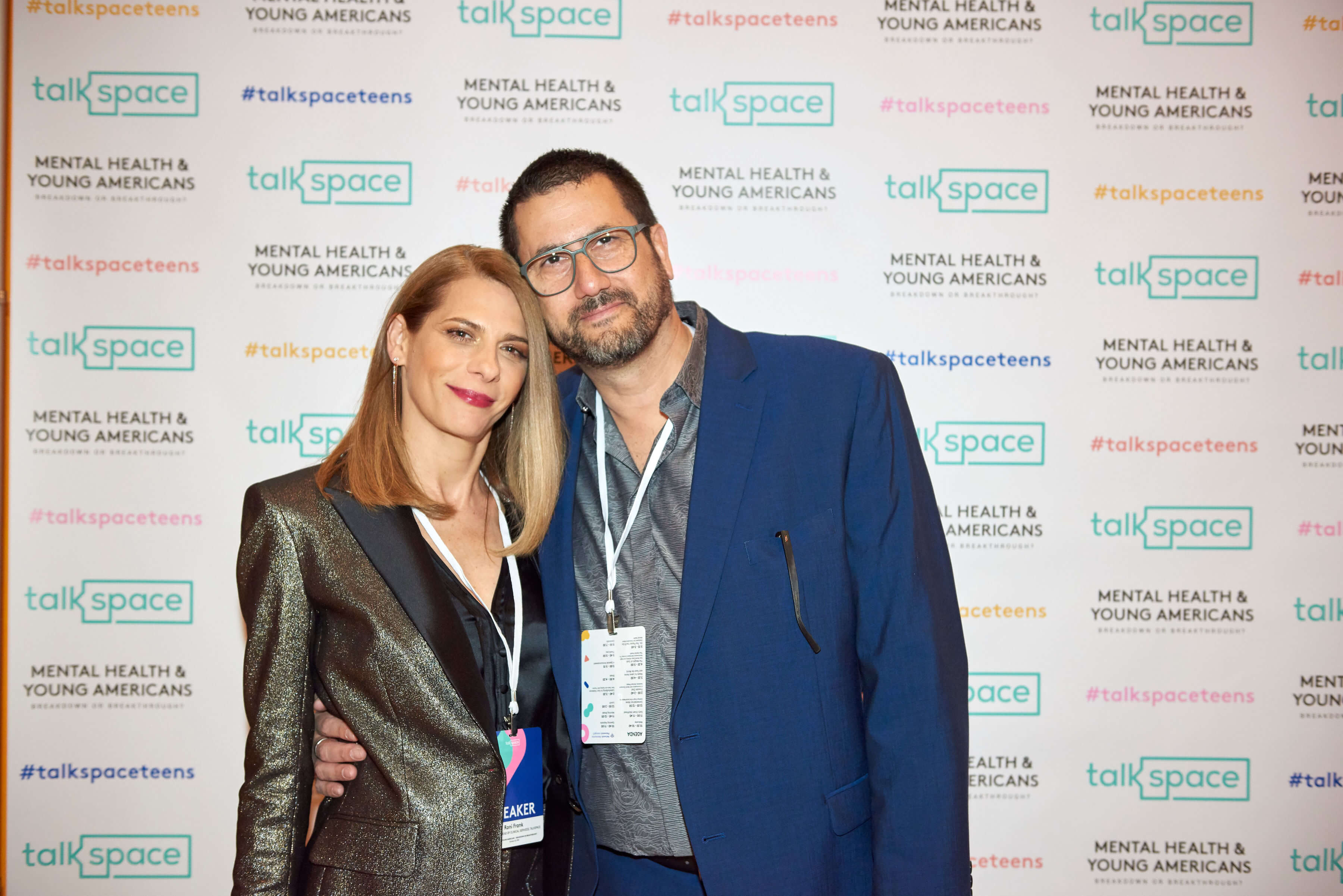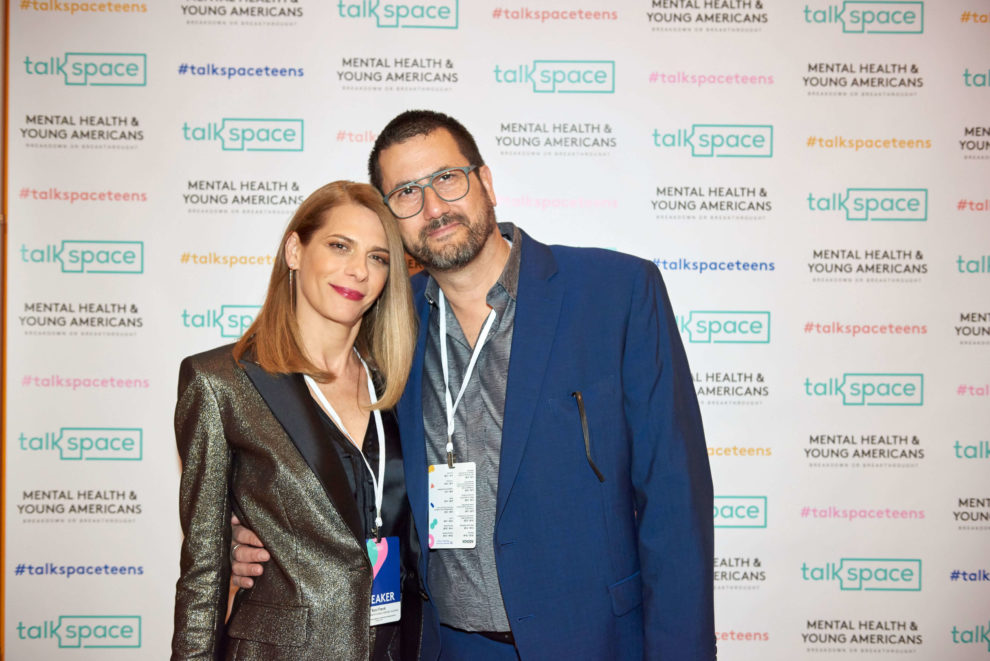Not so long ago, therapy wasn’t considered as mainstream as it is today. In fact, for some it was taboo. But that stigma has lessened, thankfully, as mental health awareness and treatment has become more commonplace.
Subscribe to the Crunchbase Daily
But cost and access to mental health providers is still a major issue—enter startups, several of which have emerged in recent years to provide people with alternatives. One of those, New York-based Talkspace, which provides therapy via a subscription-based online platform, has just raised $50 million to help reach more users. (Talkspace describes itself as a telebehavioral healthcare company.)
Revolution Growth led the Series D. Existing backers Norwest Venture Partners, Qumra Capital, Spark Capital, Compound and others, also participated in the round. As part of the funding, Patrick Conroy, principal of Revolution Growth, will join Talkspace’s board of directors.
Talkspace’s model connects individual users with a network of over 5,000 licensed therapists through a web and mobile platform the company says is HIPAA-compliant, meaning it is designed to protect a client’s privacy.
Users have “dedicated therapists” to whom they can send unlimited messages using a monthly subscription service. They can choose from a range of plans, which include messaging-only options and live video sessions. The startup also provides psychiatry services, including prescription fulfillment, adolescent therapy, and couples counseling. Its platform has been used by over 1 million people across 10 countries, according to the company, which declined to provide revenue figures. (Olympic swimmer Michael Phelps has been vocal about using the platform.)
The funding brings Talkspace’s total raised to $106.7 million since its inception in 2012 when husband and wife Oren and Roni Frank founded the company after “personally” experiencing “the benefits of therapy” in their marriage.
“We embarked on a mission to eliminate the 3 most prominent barriers to mental health services: access, stigma, and cost. We aim to provide therapy for all and thus, help create a better world of happier people in the process,” said Oren, who serves as Talkspace’s CEO.
It’s just one of a number of startups focused on mental health. Earlier this year, meditation and mindfulness app Calm became mental health’s first unicorn after raising a $88 million Series B. Another meditation app, Headspace, has raised about $75 million over time.
In a press release, Talkspace said it would use the new capital “to expand access to mental health services and improve quality of care through its national network of over 5,000 licensed, credentialed providers.”
In its release, Talkspace also said the funding would “accelerate the growth” of its commercial business, out of which it partners with employers, health plans, employee assistance programs (EAP) and educational organizations in an effort “to make therapy available and affordable.”
For example, the company has partnered with Optum’s behavioral health business. Talkspace also provides services to employees via relationships with Aetna – a CVS Health company, New Directions Behavioral Health and Magellan Health, and others. Talkspace said its commercial business “now covers over five million lives.”
“We view the addressable market for Talkspace as an enormous opportunity that is growing in both size and importance,” said Revolution’s Conroy in a press release. In a phone conversation this morning, Conroy told me that he’d been following the company for a couple of years and was impressed with its recent traction in terms of signing up with not only major insurance carriers, but a number of large employers as well. Talkspace has also established relationships with thousands of licensed professionals across the country with an average of 10 years of experience, which Conroy believes “sets it apart from the competition.”
“What Talkspace has done around building their network is very unique,” he added.
In addition to its commercial expansion, Talkspace said it plans to expand into two unidentified global markets. It also plans to expand its artificial intelligence capabilities. Currently, the company’s data science team aggregates client and therapist interactions, enabling it to better match users “with the best possible therapists,” Oren told Crunchbase News.
“By studying a large corpus of successful treatment courses, we can apply large scale regressions, and build a decision-support system based on ML (machine-learning) models that help therapists better diagnose, use the appropriate interventions, understand whether their treatment plans are effective, and apply changes in real time,” he added.
Of course, there’s been plenty of criticism of such services. In this February 2018 Outline article, users of other “text therapy” services called their experiences “unhelpful and expensive.”
Oren Frank’s response to such claims is that psychotherapy “is an incredibly helpful, but also a very traditional profession.”
“We understand and accept some of the resistance shown by the more traditional guardians of the ‘old ways,’ but those resistances are based on opinions, not data nor research,” he told Crunchbase News.
Revolution’s Conroy said the venture firm also believes that Talkspace is helping bring awareness to mental health access.
“For close to 70 percent of its people, using Talkspace was their first interaction with a therapist,” he told Crunchbase News. “We want to find companies not only attacking a big market, but are also increasing market size too. And that’s what Talkspace is doing by bringing down barriers around affordability, access and stigma.”
Without question access to mental health is a good thing, and clearly, some big-named investors agree.
Photo Credit: Lee Seidenberg

Stay up to date with recent funding rounds, acquisitions, and more with the Crunchbase Daily.






![Illustration of AI/Human teamwork. [Dom Guzman]](https://news.crunchbase.com/wp-content/uploads/AI-cowork-470x352.jpg)
![Illustration of a guy watering plants with a blocked hose - Global [Dom Guzman]](https://news.crunchbase.com/wp-content/uploads/quarterly-global-3-300x168.jpg)
67.1K Followers